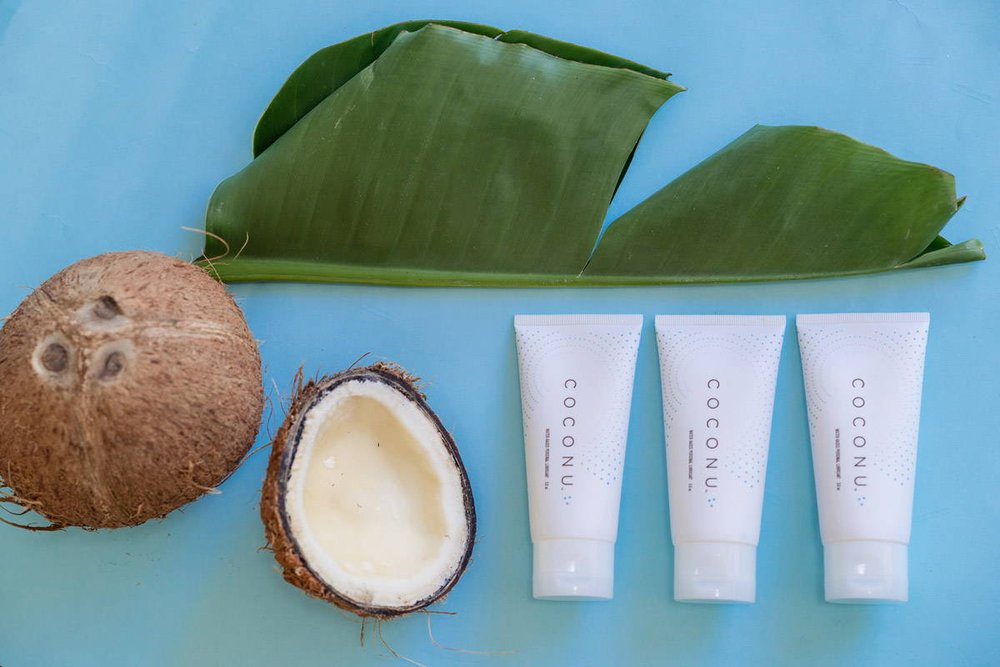5 Tips for Better Orgasms After Baby
Lovemaking may look and feel different after a baby arrives, but different can also be better.

There’s no doubt that babies change your sex life - from having time for intimacy to navigating how giving birth has changed your body. With the right mindset, these changes can open up an avenue for self-discovery.
Your body has done something amazing by bringing your baby into this world. When you understand your anatomy, how orgasms work, and the role that your pelvic floor plays in facilitating an orgasm, you have the power to unlock “secrets” that can truly transform your sex life and your orgasms - for the better.
When you approach sex postpartum with openness and curiosity, you can solve most of the common issues that may arise. In this blog, we dive into how orgasms work, common issues that arise during sex postpartum, tips for improving your sex life and troubleshooting any issues.
How Orgasms Work
Hopefully, you experienced your fair share of orgasms during the process of baby-making, so you know what an orgasm feels like. You may also be familiar with some of the other telltale signs of an orgasm (or an impending orgasm) like an increase in heart rate, blood pressure, and rapid breathing.
But do you know what actually happens when you orgasm?
When you become aroused, blood flow to your clitoris and vagina increases, causing them to become more sensitive. From there, whether or not they can function as needed to achieve an orgasm has a lot to do with your pelvic floor.
As Hayley Kava, a pelvic floor physiotherapist who works with The Bloom Method said:
“From a physiological standpoint, the bulbs of the clitoris go around the vaginal opening and are embedded in the superficial pelvic floor muscles. The legs of the clitoris run underneath the pubic bone and the clitoral hood is up under the pubic bone. It needs blood flow, just like a penis does in order to maintain engorgement and eventually progress into orgasm.”
Maintaining that blood flow is not just about squeezing and gripping the pelvic floor muscles. You need to be able to sustain a nice, rhythmic contraction of the muscles to achieve an orgasm. Of course, for many women, some other stars need to align, like focus, breath, connection with your partner, and the right sexual position.
For more on how orgasms work, we highly recommend these two episodes of Glennon Doyle’s “We Can Do Hard Things” podcast:
REAL, JOYFUL SEX with Emily Nagoski
And
Answering Your Sex Questions with Emily Nagoski (this one touches on orgasms more)
Common Issues With Intimacy Postpartum
As we mentioned above, your pelvic floor and clitoris are intricately linked together, so your pelvic floor health is critical when it comes to reviving your sex life postpartum. During pregnancy, your pelvic floor supports your growing baby, and during childbirth, it expands dramatically to bring your baby earthside.
Needless to say, it’s very involved, from start to finish, in procreation.
All this means that it’s also very common for your pelvic floor to require some TLC after giving birth, in order to restore optimal functionality so that it can return to supporting you in everything from exercise to sex. While it’s recommended to wait at least 6 weeks to resume more vigorous exercise, rehabbing your pelvic floor can start as early as one day postpartum.
In many cases, with proper rest and breathwork, your pelvic floor can heal itself. However, if you continue to experience pain, discomfort, or incontinence, we recommend seeking out the help of a pelvic floor physiotherapist.
It’s also important to be aware that during those early postpartum months, your body is busy producing oxytocin and adrenaline, and does not produce as much estrogen as it normally does. Estrogen is the hormone responsible for producing the fluid that makes you wet when aroused, so its absence means that you may experience discomfort during sex due to a lack of natural lubricant.
Luckily, there’s an easy fix for that. Buying some clean, natural lube can greatly improve postpartum sex, as can extended foreplay. This can be a great opportunity to explore some new ways to pleasure yourself and your partner.
Here at The Bloom Method, we love Coconu for its clean, natural ingredients. They offer both an oil and a water-based lubricant, and are giving Bloom’s readers 20% off. Use the code Bloom20 to take advantage of this great deal.

The Key to Better Sex After Baby
It’s true that, at least initially, sex may look and feel different after you have a baby. This is natural, normal, and should be expected - your body just accomplished an incredible feat by carrying, nurturing and birthing your baby. Of course, it requires some flexibility and adjustments from both you and your partner as you explore what your body needs to climax during sex postpartum.
This can mean more foreplay, as mentioned above, to help get you warmed up before sex. It can mean introducing a lubricant like Coconu to ensure that things go smoothly - if you know what we mean! And it can also include experimenting with different sex positions to find one that is optimal for whatever you’re experiencing as your body continues to heal.
For example, if a position puts you into more of an extension, where your pelvis is forward, butt is clenched and body is tucked under (as pictured below) that can make it difficult to maintain good blood flow to the clitoris, which can make it difficult to orgasm. So choosing a position that makes it easier to optimize the control of the muscle contractions will make it easier to reach climax.
If you want more guidance as you experiment with positions, Bloom’s wonderful PT Hayley Kava created a sex position guide that is an incredible resource for learning more about your pelvic floor and sexual anatomy. Right now you can grab the guide for 25% off using the code BLOOM.
For those that want some homework, here are two quick tips for improving your sex life postpartum:
Start by examining your vulva. With breath, do you see movement? You should be able to shorten and lengthen the muscles of your pelvic floor. If you’re not sure, place a finger on the perineal tissue or on the sit bone. Now can you feel the movement? Can you gain an ebb and flow? If you can’t, it’s probably because you can’t actually get into a diaphragmatic breath.
With your partner, try pelvic rocking, or changing positions of your pelvis. If you’re on top (or not) changes the orientation of the muscles and changes the sensations that you feel in your body. Freedom of movement in both the ribcage and pelvis can be really helpful. Now add breath along with this movement. Ask your partner if they can feel you contract and relax your pelvic floor.
These are muscles that contribute to your performance - whether sports or sex - so it needs to be taken seriously. Looking at yourself can be an incredibly powerful experience. Being able to identify and appreciate the different parts of your anatomy and investigate what’s going on with your pelvic floor is really essential if you want to improve your orgasms.
As Kava says, “Once you have control over what’s happening internally and an overall greater awareness of what’s happening inside your body, it just enhances the experience. When you can come into a partnership with more awareness of what you like and what feels good to you, and be able to communicate that - that’s huge.”
Bottom line:
There’s no doubt - having a baby transforms both your mind and your body. So it should come as no surprise that it will change your sex life a little bit - but change doesn’t have to be a bad thing.
Being patient and gentle with your body is critical, as is being willing to explore what’s different, and what might be required to get back to optimal performance. If you experiment and are open to learning about your anatomy, you may uncover much more than you expected. Understanding what brings you pleasure, and being able to communicate that with your partner, is empowering.
And if you need a little bit more assistance to get your groove back, don’t hesitate to ask for help. Many pelvic floor PTs specialize in helping you to troubleshoot sex postpartum.



